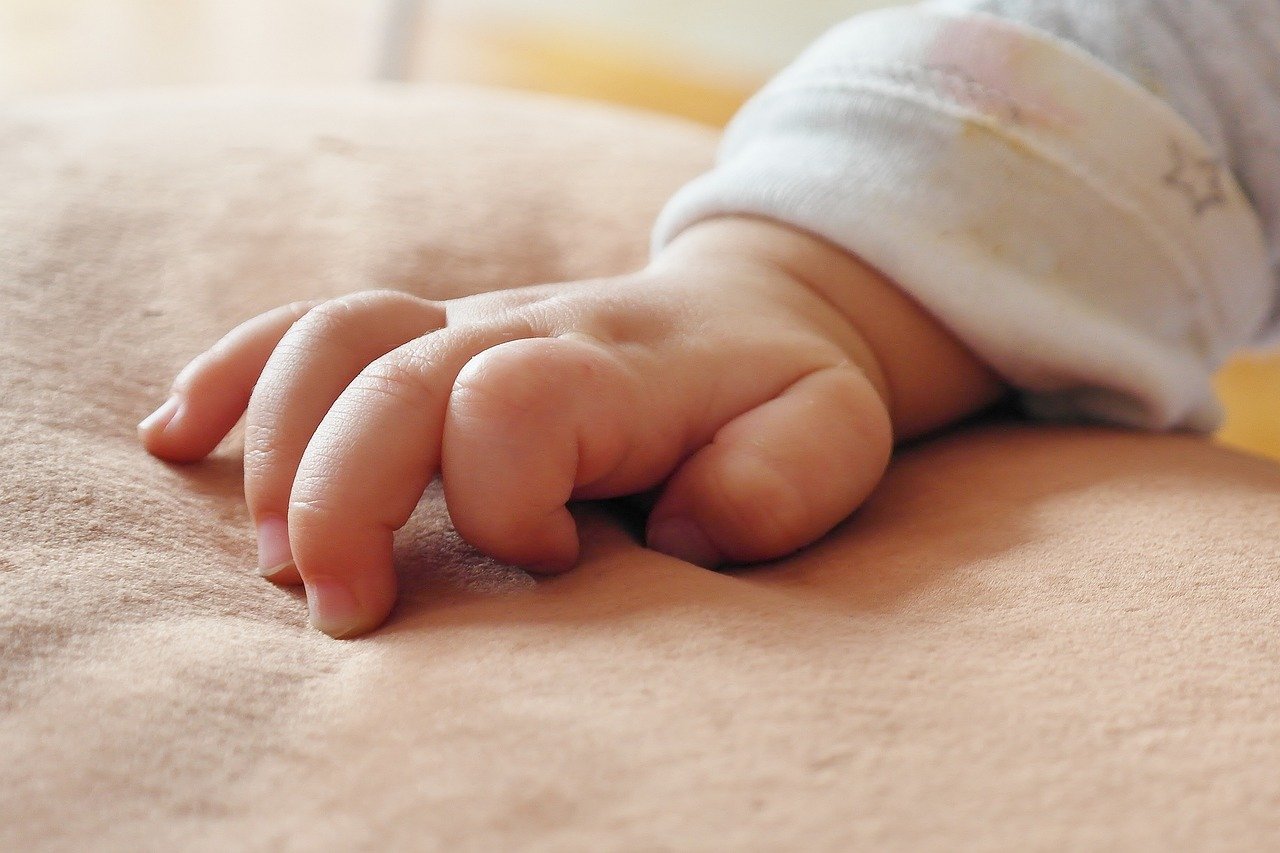Below are edited and brief sections of my masters dissertation. I hope you enjoy reading the summary of about a years hard work!
Introduction
Pregnancy, childbirth and the first year postnatally, is a highly important time in women’s lives. For women with mental health problems, motherhood can be a more challenging period than most, even distressing [1]. The National Institute for Health and Care Excellence (NICE) found that up to 20% of women experience perinatal mental health problems [2]. The Royal College of Obstetricians and Gynaecologists (RCOG) found that out of 2300 women, 81% reported they had experienced a mental health problem during the time from pregnancy to a year post birth [3]. Only 19% of the women that reported these concerns were referred to services to support them [3].
The Care Quality Commission (CQC) found that among women in the perinatal period, with one or more existing long-term conditions, mental health was the most cited condition [4]. Maintaining good mental health with effective treatments at this challenging time is crucial to ensure good outcomes for women and their children in the long term [4].
As defined by the CQC, perinatal mental health refers to mental health problems that occur during pregnancy or in the first year following the birth of a child [4]. The most common types of mental health problems in the perinatal period are depression, anxiety, obsessive-compulsive disorder (OCD), psychosis and post-traumatic stress disorder (PTSD) [5].
Mindfulness is a therapeutic technique that requires paying attention in a particular way, on purpose, in the present moment and nonjudgmentally [6]. Mindfulness can help manage and prevent feelings of depression, stress, anxiety, or discontent and enables anyone who practices it to live a more attentive, appreciative, and vibrant life [7]. At present, mindfulness is recommended by NICE as a way of preventing depression in people who have had 3 or more episodes of depression in the past [8]. The current guidance on treating perinatal mental health illnesses includes psychological interventions but does not mention mindfulness [9].
Rationale
For women with untreated mental health problems there has been associated adverse experiences and outcomes, including long-lasting effects for themselves, their baby and family [1][2] [10]. Even in utero, the baby’s health may be impacted by their mother’s mental health. Studies have found that maternal cortisol (often increased with anxiety and stress) is related to altered child outcomes [11].
Approximately half of all cases of women with perinatal depression and anxiety go unrecognised, undiagnosed, and untreated; and those who are detected do not receive evidence-based forms of treatment [12]. Allied to this, only 15% of UK localities are thought to have services which fully meet NICE guidelines for perinatal mental health care [12] [13]. With services either failing to detect or offer evidence-based treatments that fully meet the NICE guidelines, it is important to explore mindfulness as a resource for women in this challenging time.
Women have reported no agreement among healthcare professionals about use of medication for mental health illnesses during or after pregnancy [3]. At present, no psychotropic medication has a UK marketing authorisation for women who are pregnant or breastfeeding [13] and the choices for non-pharmacological treatment are limited [14]. It is expected that before starting any treatment a risk benefit analysis should be used when considering psychotropic medications and/or psychological interventions [13]. Women have expressed preference for nonpharmacological interventions, and given the risks associated with the use of psychotropic medication, effective psychological interventions ought to be made available [15].
I did this review as it directly related to my practice as a perinatal mental health nurse on a Mother and Baby Unit (MBU). These specialist units treat and support women with a range of serious mental health disorders. Evidence shows that there are better outcomes for the infant and the mother when treated on an MBU [16]. Presently, mindfulness provision on MBU’s varies from unit to unit [17]. Provision of services, interventions and treatments should be consistent for women across England and delivered based on the best evidence available [18].
There is a growing evidence base that suggests that mindfulness based cognitive therapy (MBCT) [19], is effective for generalised anxiety disorders and for reducing the rate and length of relapse in depression [20] [21]. Relevant systematic reviews about mindfulness-based interventions in the perinatal period for depression, stress and anxiety were published in 2016 and 2017 [15] [22] [23]. Hall et al. and Shi and MacBeth found that there is insufficient evidence from high quality methodologically rigorous trials [22] [23]. Lever Taylor et al. wrote that future research should have randomised control designs, have more diverse, representative clinical samples and active control groups [15]. With the rapid growth of literature in this area it is appropriate to update searches and review the evidence base [23].
With lots of words and interesting things later, we come to the succinct bit which I hope you will enjoy…
Conclusion
The available evidence indicates that mindfulness interventions consistently improve symptoms of depression, anxiety, and stress in the perinatal period. Corbally and Wilkinson also find that controlled trial evidence suggests that mindfulness-based interventions improve mindfulness and can decrease symptoms of depression during pregnancy [24]. This study, however, goes further and indicates the same could also be true for anxiety and stress [24]. This review also finds that continuing mindfulness practice improves the intervention efficacy in the longer term [25]. However, it is difficult to draw a conclusion about the significance of the improvement given the reliability of the results shown. With the current focus during pregnancy being on health education, labour, and birth, it may be difficult to relieve mental health symptoms without a specific mental health intervention. To improve believability of results, future research should compare mindfulness to another validated treatment, for example cognitive behaviour therapy. This is yet to be seen. Generalisability of results remains an issue, as found in the previous reviews. Lastly, concerns about participant attrition and want for longer term follow up are important issues that afflict studies about depressive disorders.
If you are going to use any of this work, please reference:
Burholt, E. (2022) Mindfulness in the perinatal period: Is it an effective intervention for depression, anxiety, and stress? Available at: https://www.almaentera.com/learning/mindfulness-in-the-perinatal-period-is-it-an-effective-intervention-for-depression-anxiety-and-stress
References
[1] The British Psychological Society and The Royal College of Psychiatrists. Antenatal and Postnatal Mental Health: The NICE Guideline on Clinical Management and Service Guidance. 2007 Feb [updated 2018 Apr; cited 2020 Dec 10]. Available from: https://www.nice.org.uk/guidance/cg192/evidence/full-guideline-pdf-4840896925
[2] NICE. NICEimpact maternity and neonatal care [Internet]. London & Manchester: National Institute for Health and Care Excellence; 2019 Sept [cited 2020 Dec 11]. Available from: https://www.nice.org.uk/Media/Default/About/what-we-do/Into-practice/measuring-uptake/maternity-neonatal-impact/nice-impact-maternity-neonatal.pdf
[3] Royal College of Obstetricians and Gynaecologists. Maternal Mental Health – Women’s Voices. London: Royal College of Obstetricians and Gynaecologists; 2017 Feb [cited 2020 Dec 10]. 58 p. Available from: https://www.rcog.org.uk/globalassets/documents/patients/information/maternalmental-healthwomens-voices.pdf
[4] Care Quality Commission. 2019 survey of women’s experiences of maternity care [Internet]. NHS;2020 Jan. 79 p. Available from: https://www.cqc.org.uk/sites/default/files/20200128_mat19_statisticalrelease.pdf
[5] MIND. Postnatal depression and perinatal mental health [Internet]. London & Wales: MIND; 2020 [cited 2020 December 11]. Available from: https://www.mind.org.uk/information-support/types-of-mental-health-problems/postnatal-depression-and-perinatal-mental-health/about-maternal-mental-health-problems/
[6] Kabat-Zinn J. Wherever you go there you are: Mindfulness meditation in everyday life. New York: Hyperion; 1994.
[7] Oxford Mindfulness Centre. Welcome to The University of Oxford Mindfulness Centre [Internet]. Oxford: Oxford Mindfulness Centre; 2021 [cited 2021 Jan 4]. Available from: https://www.oxfordmindfulness.org/
[8] NHS. Treatment: Clinical depression [Internet]. NHS; 2019 Dec 10 [cited 2020 Dec 11]. Available from: https://www.nhs.uk/conditions/clinical-depression/treatment/
[9] NICE. Treating specific mental health problems in pregnancy and the postnatal period [Internet]. London & Manchester: National Institute for Health and Care Excellence; 2014 Dec 17 [updated 2020 Feb 11, cited 2020 Dec 10]. Available from: https://www.nice.org.uk/guidance/cg192/chapter/1-Recommendations#treating-specific-mental-health-problems-in-pregnancy-and-the-postnatal-period
[10] Asmussen K, Fischer F, Drayton E, McBride T. Adverse childhood experiences What we know, what we don’t know, and what should happen next [Internet]. London: Early Intervention Foundation; 2020 Feb. 129 p. Available from: https://www.eif.org.uk/report/adverse-childhood-experiences-what-we-know-what-we-dont-know-and-what-should-happen-next
[11] Zijlmans M, Riksen-Walraven J, De Weerth C. Associations between maternal prenatal cortisol concentrations and child outcomes: A systematic review. Neuroscience and Biobehavioral Reviews [Internet]. 2015 Jun [cited 2020 Dec 10];53:1-24. Available from: https://www.sciencedirect.com/science/article/pii/S0149763415000639?casa_token=rkVOU9pgkgQAAAAA:ICr_txqwjBFl6s3PpobkhzV6Cs5WQg6ZzvumyrQdoVcfJymSJzCYl7zm936EyTIhobHZBGZ56g
[12] Bauer A, Parsonage M, Knapp M, Iemmi V, Adelaja B. The costs of perinatal mental health problems [Internet]. London: Centre for Mental Health and London School of Economics;2014 Oct. 44 p. Available from: https://www.nwcscnsenate.nhs.uk/files/3914/7030/1256/Costs_of_perinatal_mh.pdf
[13] NICE. Antenatal and postnatal mental health: clinical management and service guidance [Internet]. London & Manchester: National Institute for Health and Care Excellence; 2014 Dec [updated 2020 Feb 11, cited 2020 Dec 11]. Available from: https://www.nice.org.uk/guidance/cg192/chapter/Introduction
[14] Zemestani M, Fazeli Nikoo Z. Effectiveness of mindfulness-based cognitive therapy for comorbid depression and anxiety in pregnancy: a randomized controlled trial. Archives of Women's Mental Health. 2020 Apr 13;23(2):207-214.
[15] Lever Taylor B, Cavanagh K, Strauss C. The Effectiveness of Mindfulness-Based Interventions in the Perinatal Period: A Systematic Review and Meta-Analysis. PLoS ONE [Internet]. 2016 May [cited 2020 Dec 11], 11(5):1-29. Available from: https://pubmed.ncbi.nlm.nih.gov/27182732/
[16] Stephenson LA, Macdonald AJD, Seneviratne G, Waites F, Pawlby S. Mother and Baby Units matter: improved outcomes for both. BJPsych Open [Internet]. 2018 Apr 19 [cited 2020 Dec 11];4(3):119-125. Available from: https://pubmed.ncbi.nlm.nih.gov/29971155/
[17] RCPsych Public Engagement Editorial Board. Mother and Baby Units (MBUs) [Internet]. London: Royal College of Psychiatrists; 2018 Nov [cited 2021 January 4]. Available from: https://www.rcpsych.ac.uk/mental-health/treatments-and-wellbeing/mother-and-baby-units-(mbus)
[18] NMC. The Code [Internet]. London: Nursing and Midwifery Council; 2015 Jan [updated 2018 Oct 10, cited 2021 Jan 4]. Available from: https://www.nmc.org.uk/standards/code/read-the-code-online/
[19] Segal Z, Teasdale J, Williams M. Mindfulness-Based Cognitive Therapy for Depression. New York: Guilford Press; 2002.
[20] Ghahari S, Mohammadi-Hasel K, Malakouti SK, Roshanpajouh M. Mindfulness-based Cognitive Therapy for Generalised Anxiety Disorder: a Systematic Review and Meta-analysis. East Asian Archives of Psychiatry [Internet]. 2020 Jun [cited 2020 Dec 10];30(2):52-56. Available from: https://pubmed.ncbi.nlm.nih.gov/32611828/
[21] McCartney M, Nevitt S, Lloyd A, Hill R, White R, Duarte R. Mindfulness-based cognitive therapy for prevention and time to depressive relapse: Systematic review and network meta-analysis. Acta Psychiatrica Scandinavica [Internet], 2020 Oct [cited 2020 Dec 10];143(1):6-21. Available from: https://onlinelibrary.wiley.com/doi/full/10.1111/acps.13242
[22] Hall HG, Beattie J, Lau R, East C, Anne Biro M. Mindfulness and perinatal mental health: A systematic review. Women and Birth. 2016 Feb;29(1): 62-71.
[23] Shi Z, MacBeth A. The Effectiveness of Mindfulness-Based Interventions on Maternal Perinatal Mental Health Outcomes: a Systematic Review. Mindfulness. 2017 Jan 19;8(4):823-847.
[24] Corbally L, Wilkinson, M. The Effect of Mindfulness‑Based Interventions on Stress, Depression and Anxiety During the Perinatal Period in Women Without Pre‑existing Stress, Depressive or Anxiety Disorders: a Systematic Review and Meta‑analysis of Controlled Trials. Mindfulness [Internet], 2021 Jul [cited 2021 Sept 28],12:2357–2370. Available from: https://link-springer-com.soton.idm.oclc.org/content/pdf/10.1007/s12671-021-01697-3.pdf
[25] Lönnberg G, Jonas W, Bränström R, Nissen E, Niemi M. Long-term effects of a mindfulness-based childbirth and parenting program—A randomized controlled trial. Mindfulness. 2020 May 13;12:476-488.


